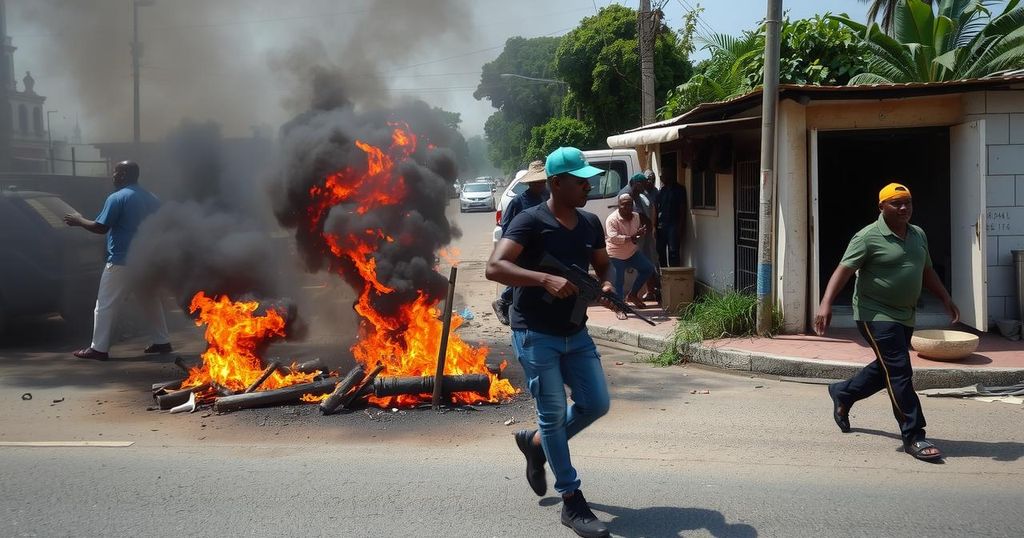Mozambique Sees 125 Deaths Amid Post-Election Violence and Unrest
Mozambique has experienced violent protests following the confirmation of presidential election results, resulting in 125 deaths over three days. The ruling Frelimo party retained power, triggering unrest amid allegations of electoral fraud. Significant civilian and police clashes have resulted in mass arrests and fatalities, raising concerns about governance and stability in the country.
In recent days, Mozambique has witnessed a devastating surge in violence, claiming around 125 lives amid widespread opposition-led protests against the presidential election results. A non-governmental organization reported these figures, highlighting the ongoing unrest following the election results that solidified the ruling Frelimo party’s hold on power. Despite recognition of irregularities in the October 9 elections by international observers, the nation’s highest court confirmed the victory of Daniel Chapo with 65.17 percent of the vote. The announcement incited massive demonstrations, frequently devolving into violent confrontations with law enforcement, resulting in vandalism and looting in various cities.
The government has reported alarming statistics, noting that at least 21 individuals died in the first 24 hours of rioting across major urban centers. Furthermore, a significant security breach—identified as a mass jailbreak near the capital, Maputo—resulted in the deaths of 33 inmates during clashes with guards. The NGO Plataforma Decide has documented the ensuing chaos, emphasizing that, since the violence reignited in October, there have been a total of 252 fatalities due to the unrest, with the majority being concentrated near the capital, as well as in the northern provinces and the city of Beira.
Over 4,000 individuals have been apprehended in connection to these demonstrations, with 137 arrests occurring within the last few days alone. Venancio Mondlane, the exiled opposition leader and primary adversary to Chapo, insists that the elections were rigged, alleging that authorities manipulated the situation to justify a state of emergency to suppress dissent. While some barricades in the capital were removed, many still obstruct traffic, and public transportation services remain suspended, illustrating the ongoing strife in the nation.
Mozambique has seen political turmoil since its independence, with the Frelimo party maintaining a strong grip on power since 1975. The recent presidential elections held on October 9 were met with allegations of significant irregularities. International observers have expressed concerns, which have only intensified public dissatisfaction. The violent protests that erupted following the election results reveal deep-seated tensions in Mozambican society and raise questions about governance and civil liberties. The resulting clashes between security forces and protesters further illustrate the instability the country faces, compounded by a history of political grievances.
The recent post-election violence in Mozambique has led to a staggering death toll, underscoring the severity of the unrest fueled by opposition protests against the electoral results. The government’s response, coupled with accusations of police brutality and rigged elections, has exacerbated national tensions. With thousands arrested and critical infrastructures disrupted, Mozambique finds itself at a pivotal moment, where resolution and dialogue are urgently needed to restore peace and stability.
Original Source: www.rfi.fr




Post Comment